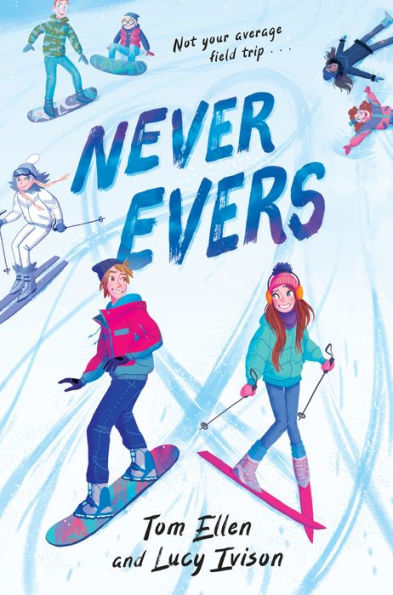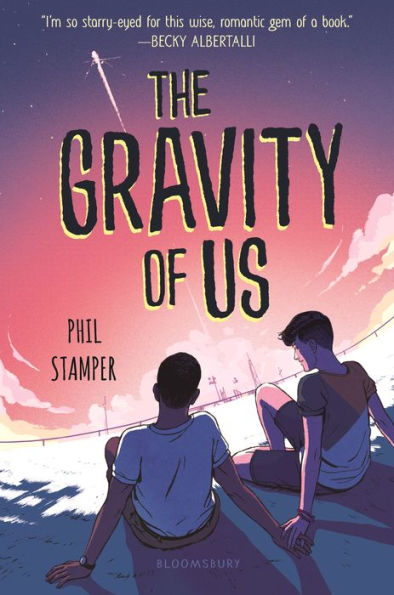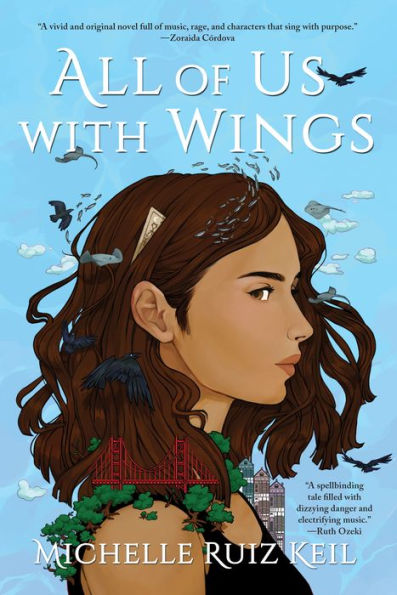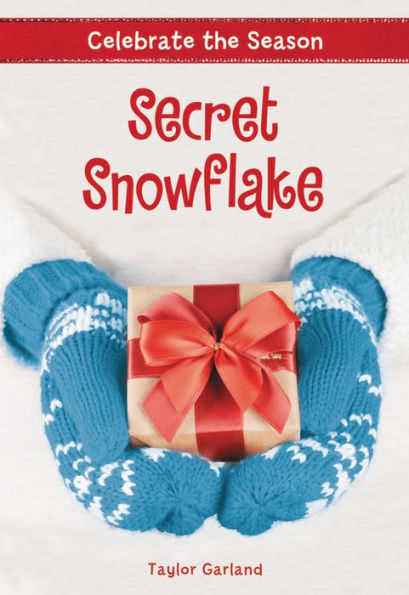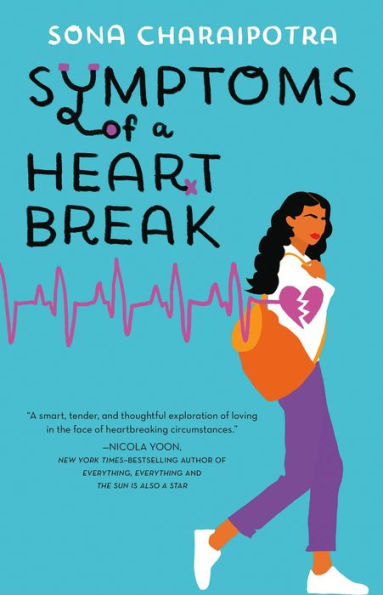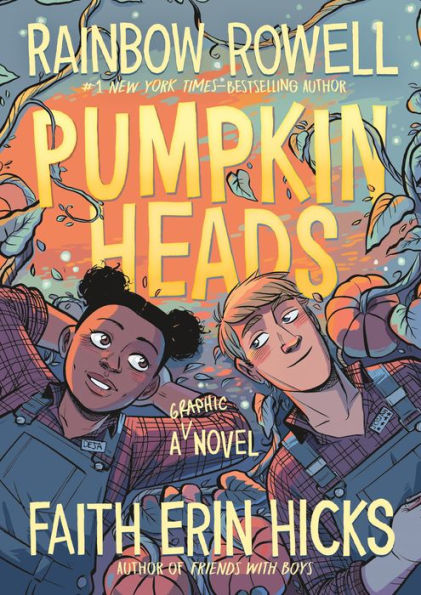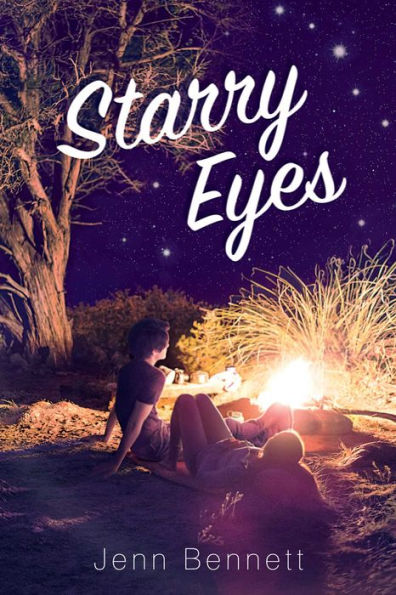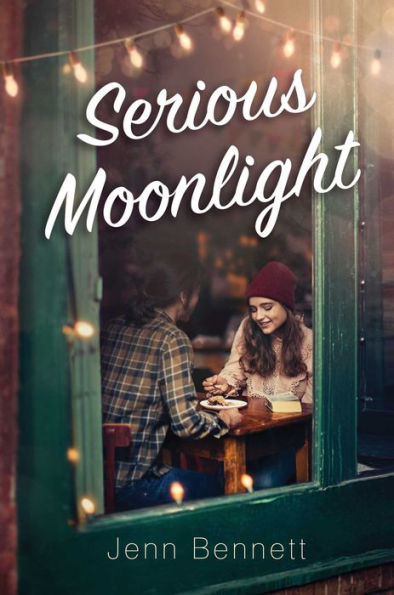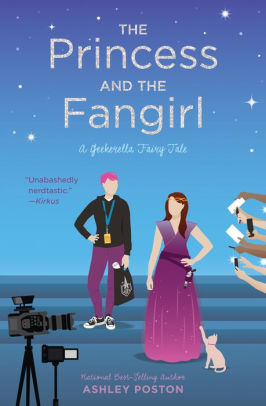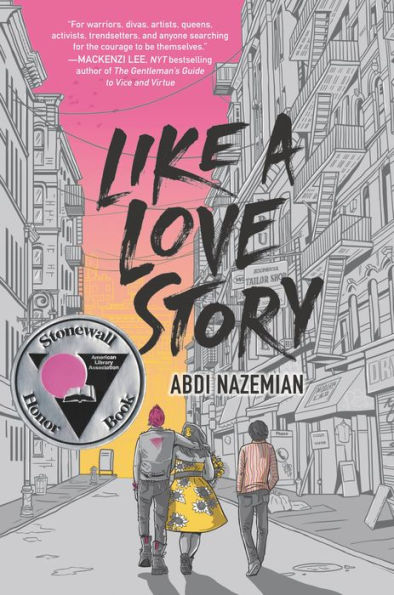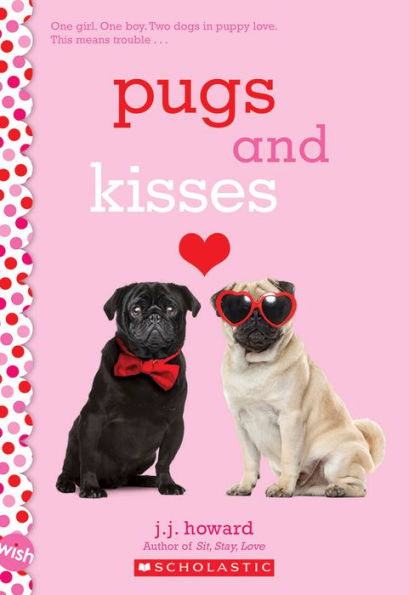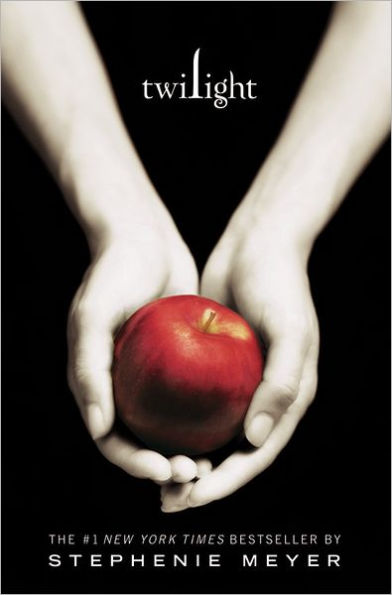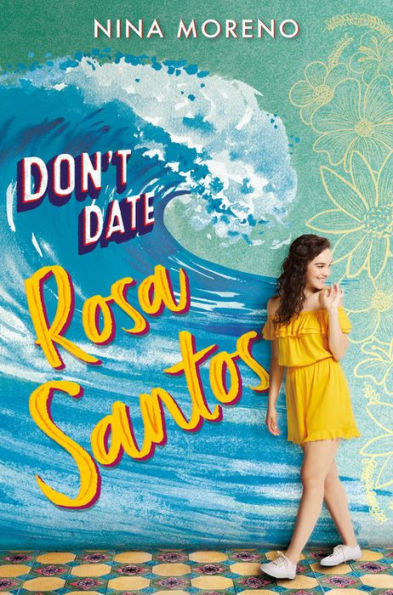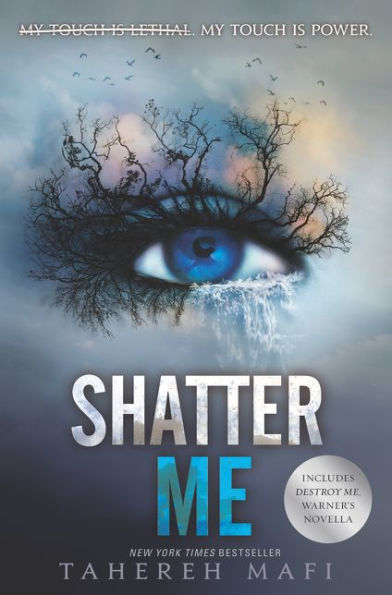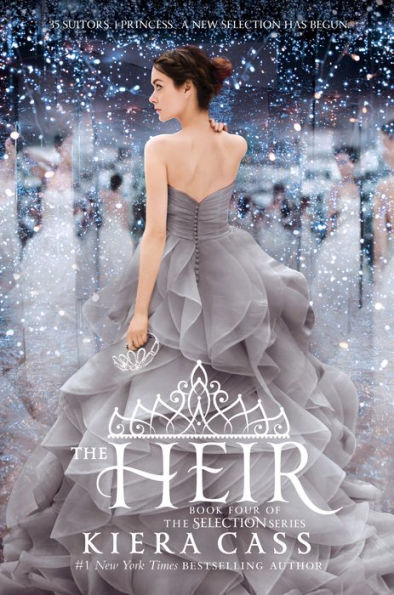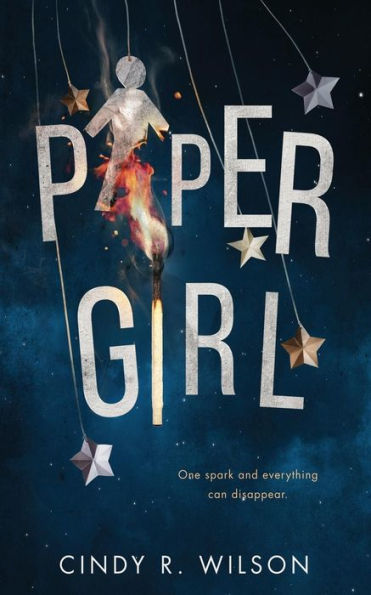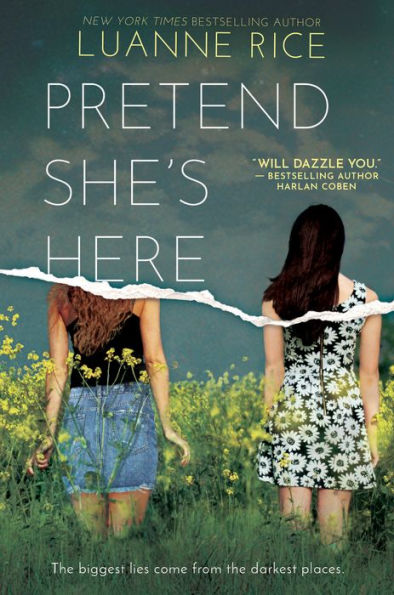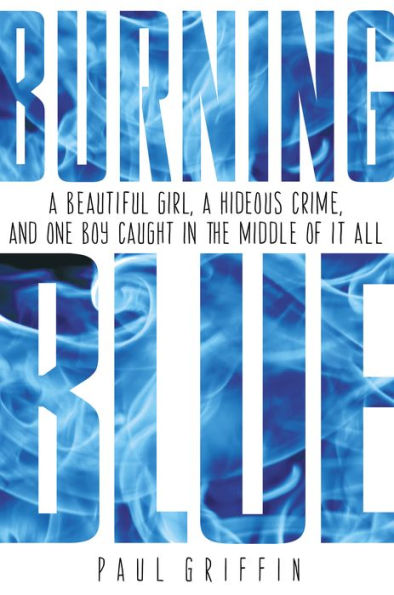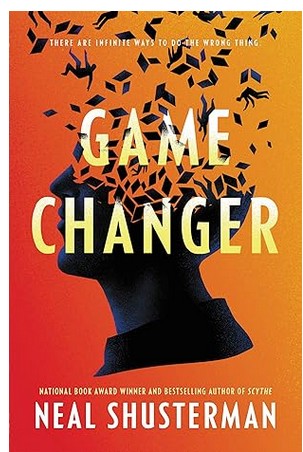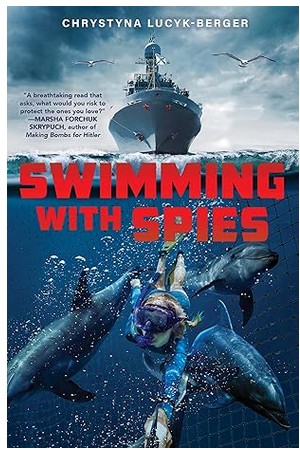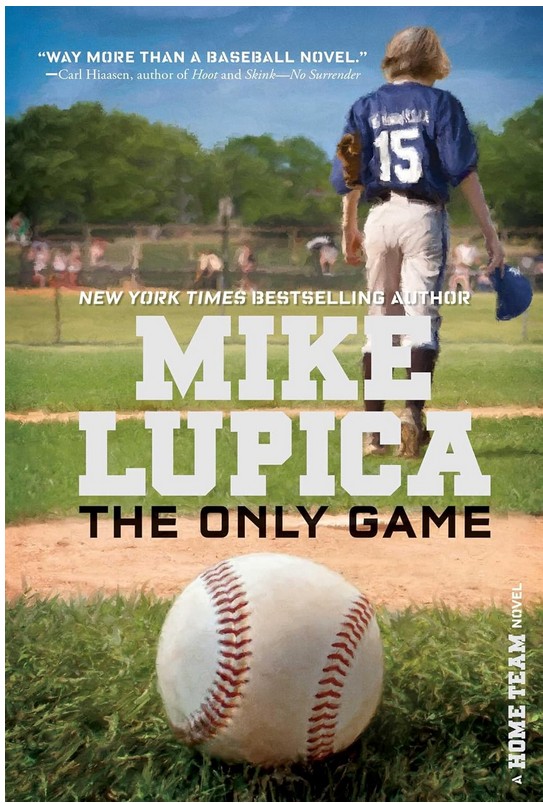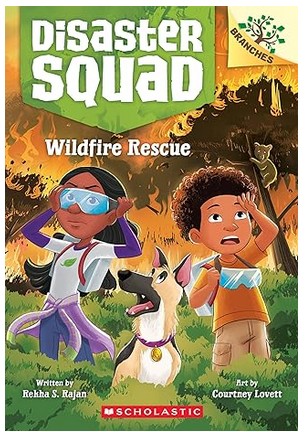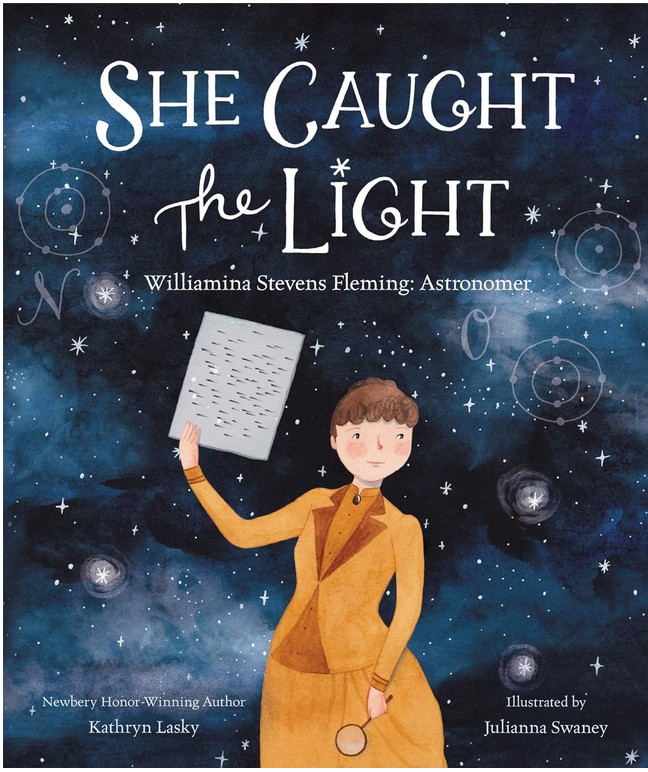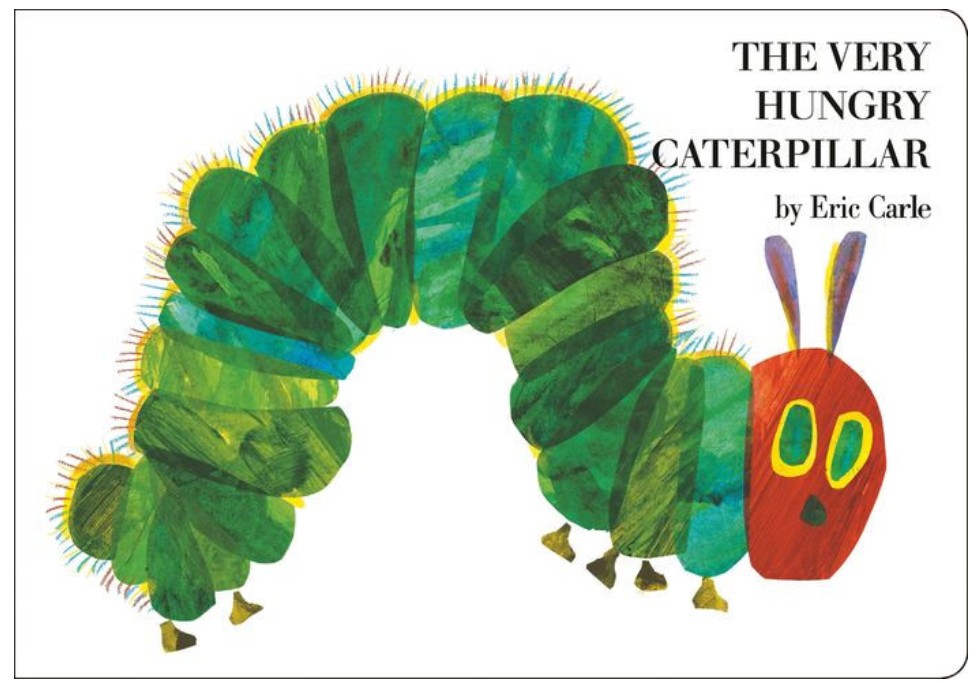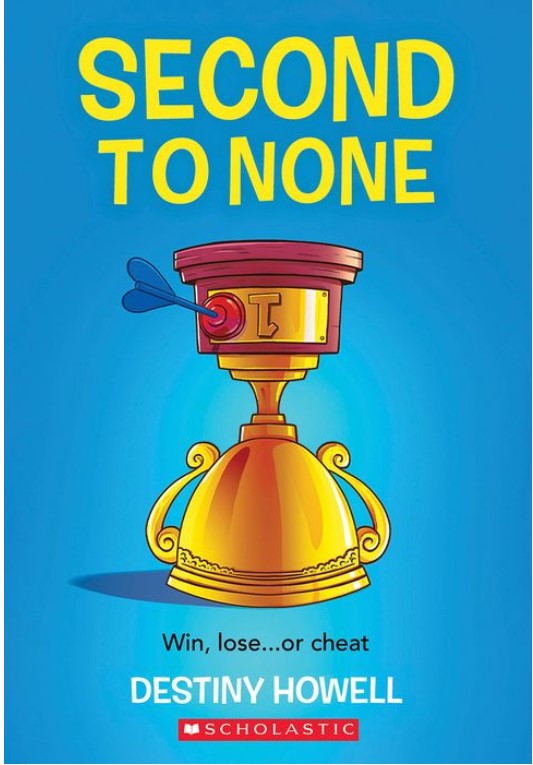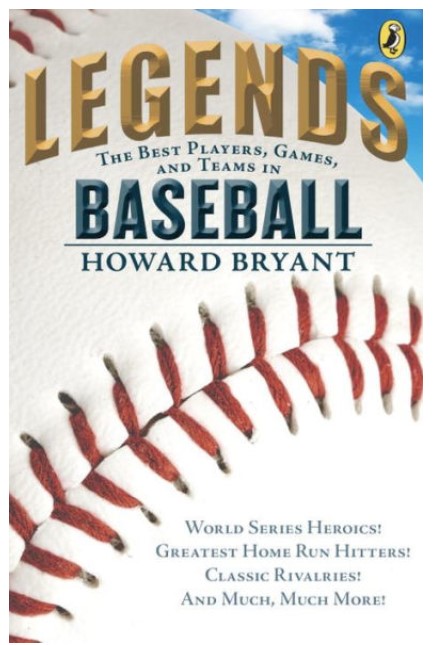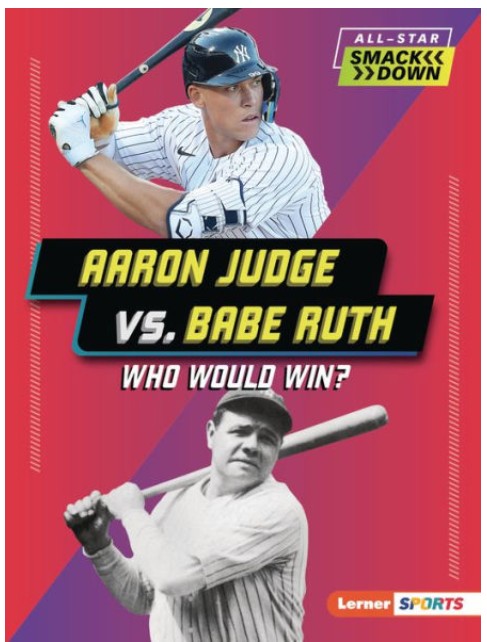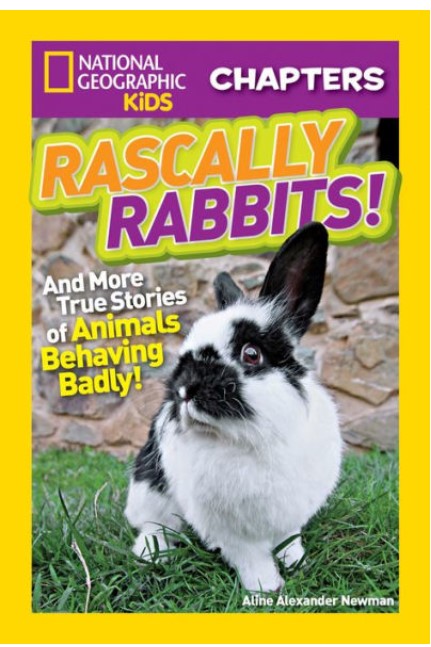After running away to San Francisco, 17-year-old Xochi stumbles into a new job working for an eclectic group of people that live in Eris Gardens. Eris Gardens is a mansion inhabited by the rock band Lady Frieda and their various friends and lovers. The band members live like a big family. They operate under a creed of free love and polyamory while trying to keep their party lives under control enough to protect twelve-year-old Pallas. Xochi befriends Pallas and moves into Eris Gardens to become her governess.
The story is told mostly through Xochi’s third-person perspective, but many chapters are told through the perspectives of other characters. Some chapters show the perspectives of the precocious Pallas, other eccentric characters in Eris Gardens, figures from Xochi’s past, and even the intelligent neighborhood cat, Peasblossom. The rotating perspectives help round out the story and supply viewpoints that Xochi’s perspective alone couldn’t provide. However, readers may be confused, as the narrative gives little warning before introducing the viewpoints of brand-new characters.
Xochi and Pallas make a pretend potion in the bathtub, which has unintended magical consequences. Two small supernatural beings—dubbed “Waterbabies”—appear. The mystical “Waterbabies” begin to meddle in Xochi’s life, attacking those who wish her harm and seeking revenge on those who have harmed her in the past. In order to stop them from going out of control, Xochi must face her past and make peace with the life and trauma she left behind. Meanwhile, she begins a perilous and forbidden romance with Pallas’ 28-year-old father Leviticus. Through its rotating perspectives, All of Us with Wings tells the story of the difficult transition to adulthood for young people who have been abused and forced to grow up too quickly.
Like many seventeen-year-olds, Xochi is not quite sure what she wants, and spends much of the book aimlessly stumbling across San Francisco as she tries to grope with her past. Readers will enjoy the story’s unique magical realism. Characters receive prophetic visions and dreams, read tarot cards, and talk about their inner eyes and auras. In this book, San Francisco oozes magic from every alley, mysterious bookshop, public mural, and street corner. The book portrays the excitement and mystique of San Francisco’s nightlife and counter-culture, but it also delves into the city’s dark side. Some scenes take place in bars, burlesque clubs, and even a heroin den.
Xochi’s difficult past centers around her mother, Gina, who abandoned her, and her mother’s boyfriend, Evan, who sexually abused her. The Waterbabies exact their revenge on these people psychologically—by replaying the memories of the harm they have done—and physically. Despite the fact that the Waterbabies have taken Xochi’s past into their own hands, it’s still up to her to come to terms with all that has happened to her.
One of the most puzzling pieces of this book is Xochi’s relationship with Leviticus, her 28-year-old employer. Both she and Leviticus know that their relationship is taboo. Leviticus has “a strict policy” about young women, “because the older person has more experience and more power.” Older men have taken advantage of Xochi in the past, and characters frequently make reference to her age, calling her “jailbait” even though they all seem to agree that she is “mature for her age.” However, the book ends with Leviticus and Xochi on amicable terms, and open to future romance, while skirting around the questions that readers may have about whether or not the relationship is appropriate.
All of Us with Wings is for mature readers. It includes a lot of graphic content and situations that are difficult to talk about. Readers will appreciate the portrayal of a young person growing up and entering the world, but the ending may leave them confused.
Sexual Content
- Pallas spies on her mother, Io, and sees that “embedded in the small of Io’s back was a set of small silver hooks, much like the fasteners on Pallas’s own Victorian boots. A black ribbon crisscrossed her mother’s bird-boned spine, connecting the hooks like laces on an invisible corset.” She realizes that the piercings must be sexual and remembers seeing “a book of photographs of outlandish piercings and tattoos she wasn’t supposed to look at. Io’s disturbing new hooks and ribbons weren’t attached to some unimaginably painful private place, but like the piercings in the book, they were definitely sexual—frightening, powerful and secret.” Seeing this leaves Pallas shaken and upset.
- Later at a party, Xochi sees “a man, naked and heavily tattooed, hung above a platform by thick metal hooks threaded through the skin of his chest. She expected to see blood dripping from the wounds in the skin above his pierced nipples, but there was nothing. This was less a crucifixion than a display of an unusual piercing done some other strange night and long since healed.”
- Leviticus says he has a personal rule that he won’t have sex with “anyone who’s too high to operate heavy machinery.”
- While kissing a strange man, Xochi “felt herself respond to his hands on her hips, the hardness under his jeans, unwanted but also hot.” After Xochi’s encounter with this man, a band member tells her that the man is “a good kisser, and his dick is huge. You must have noticed—he’s like zero to boner in three seconds.”
- Xochi wonders if she has “some sort of fetish for older men.”
- Xochi kisses Bubbles, a 24-year-old woman. “It was a long kiss, a little world. Bubbles’ tongue produced a ticklish little sting. In accord, they stopped and laughed.”
- Pallas’ mother, Io, explains polyamory to Pallas. “Some people want to be part of a pair. They feel best when they give their love to one other person, like a husband or wife. Some people want to be singular, but love many people in lots of different ways. Some people don’t want a lover at all and like being alone. There’s no one right way to do love.”
- The Waterbabies replay the memory of Evan’s abuse of Xochi until Evan realizes that she never consented to sex. Evan had “pulled her up. Brushed leaves from her hair. Held her, tried to comfort her. Then he kissed her. Her eyes flew open, all pupil. She was out of her mind, but her body knew what to do. When she kissed him back, she was all fire. His hands were in her hair, under her skirt, she was pulling him into her, nails digging through his T-shirt, her leg wrapped around his hip. It was fast and fierce. At the time, he thought she came. But now, watching, he wasn’t so sure . . . Afterward, alone in his bed, he’d told himself it was mutual. A freak moment born of grief. But the truth was, he’d been after this for a year, at least. After her. There’d been an opening, and he’d taken it . . . And she hadn’t wanted it. He could see that, too. After that, he only came to her when he was wasted, but he found a way to do it sober soon enough, never thinking of it when she wasn’t there, never planning in advance, living in the moments of sweet relief and forgetting them when they were done. Now he could see his mistake, taking silence for acceptance, despair for consent.”
- In another supernaturally-induced flashback, Evan remembers a scene with Xochi’s mother, Gina. “Gina herself was on the floor. He stood over her, a monster. He was twice her size, but she met his eyes, defiant, blood smeared on her thighs because he’d been too rough. Too rough after her female troubles, too rough too many times. There were bruises on her arms, a black handprint spanning her bicep.”
- Xochi remembers a summer when she “touched herself at night in bed, in the morning in the shower, in the deepest part of the swimming hole with the sun on her back and her face in the water, the pleasure proof she was perfect, needed no one.”
- In a chapter narrated by Leviticus, he looks at Xochi and notices, “her legs were long, her movements coltish—just the sort of innocent-sexy detail that made him feel like a pervert straight out of ” (Lolita is a famous book about a man who abuses a young girl.)
- Evan remembers how Xochi’s mother, Gina, had an IUD that she kept secret until it got infected. “If it hadn’t been for the trouble with Gina’s IUD, the awful infection, he would have always believed he was damaged goods when she never got pregnant.”
- Leviticus thinks, “You could tell everything about a woman from kissing her – how she’d have sex, how she’d love. How it would end. Men weren’t like this. All you could tell from kissing a guy was how he gave head.”
- Peasblossom, the cat, recalls living with a gay couple. One of them say that he thinks the cat “likes it when we fuck.”
- Xochi walks through a neighborhood where, “Neon signs advertised Big Al’s Playboy Club, The Garden of Eden, and The Lusty Lady, where a topless cartoon redhead danced, the words ‘Live Nude Girls’ blinking on and off below her high heeled shoes.”
- Xochi stops outside a strip club and talks to a dancer who works there. The dancer says, “They’ll hire you. You’re gonna rake it in.” Xochi clarifies that she’s not looking for a job, but the redhead continues to talk strategy, saying, “Focus on the old guys, play the nice girl and you’ll hardly have to do a thing.”
- Xochi goes into the strip club, and watches dancers on the stage. By the end of a song, a dancer is “naked except for her thigh-high boots.” Xochi also sees lap dances happening all around her. She wonders, “What happened if the men ejaculated?” She also wonders if the dancers have to perform lap dances for creepy customers. “She felt—what? Scared, maybe. Definitely embarrassed. It was just so weird seeing this private thing done in public. So weird it was actually someone’s job. But the dancers were gorgeous. Watching them was like an endless Christmas morning, unwrapping gift after shiny gift.”
- Xochi makes out with Leviticus. “They kissed and kissed, her lips raw from the stubble on his face, her hands tracing the shape of his arms, his back, his chest, pulling his shirt over his head. Her body was alive with purpose. His hands were on her back, her breasts.”
- Xochi remembers her grandmother saying that a good rule for sex was, “If you can’t talk about it, don’t do it.” She thinks, “Maybe it was a good rule for drugs, too.”
- Xochi is alone with an exotic dancer named Justine who takes her dress off to show Xochi a full-body tattoo of a tree. “Xochi leaned closer, her mouth an inch above Justine’s pale shoulder. Her lips rested there, and then her tongue took up the tracing, her piercing sparking along the tattooed branches. When she reached the apple, she didn’t think; her teeth just sank into the bright-red center of the forbidden fruit.” The next thing the reader sees is that “Xochi and Justine returned to the party, lips swollen, makeup smudged, hands entwined.”
- When asked how far she went with Justine, Xochi says, “We fooled around. . . I don’t know what it’s called. When you do it to a guy, it’s a hand job.”
- While Xochi is strung out on heroin with two near-strangers, Justine and Duncan, they “made a game of it. Justine undid a button on Xochi’s jacket. Duncan unbuttoned Xochi’s shorts. Justine undid another button. Duncan fumbled with her bra.” They are interrupted before they can go any further.
- In a dream, Gina sees “an entire classroom of kindergarten Ginas, one girl for every day that year’s foster father drove her to school the long way.” The insinuation is that her foster father abused her.
- A character recalls school bullies telling her, “Eww, gross, your dad is gay—he’s going to give you AIDS in your Cheerios.”
- A character jokes that Peasblossom, the cat, “may be fixed, but he still tomcats around.”
- At the climax of the story, Xochi says the word “rape” out loud, allowing herself to acknowledge what happened to her.
Violence
- While walking alone at night, a strange man follows Xochi. The man says, “Bitch, I’m talking to you. Don’t make me chase you.” Xochi escapes without the incident escalating further, but it leaves her shaken.
- When Evan is accosted by the Waterbabies, they drag him into a lake. “Something was touching his feet, pulling him down. He clutched at his ankles and found two pairs of miniature hands. He clawed and thrashed his limbs, but every movement seemed to add weight to his body, quickening his descent to the bottom of the impossible lake.” Once he reaches the bottom, he finds himself supernaturally able to breathe as the Waterbabies confront him and replay his memories for him. Later, Xochi hears that he was found dead in the lake.
- The residents of Eris Gardens teach Pallas aikido for self-defense. Pallas says it’s “because I’m turning thirteen soon and becoming a woman.”
- During self-defense training, Xochi goes into a trance while she spars with an Eris Gardens resident. When she awakes, the resident “was on his knees at her feet, doubled over in pain.” He says, “Just a flesh wound. Where’d you learn to fight like that?” Xochi is never told exactly what she did, but is confused at why she lost control. “She’d never hit anyone in her life . . . not when a girl pushed her down in middle school, or when a gang of boys chased her with a Screw magazine and forced her to look at the centerfold.”
- The Waterbabies and Leviticus break into a drug den to rescue Xochi. The Waterbabies blow up the fish tanks, which explode. The shrapnel hits one man who “swore, clutching his crotch. His hands turned red. He ran to the bathroom, blood spilling down the front of his designer jeans.” The Waterbabies then attack Leviticus, thinking he means harm. One “decked and straddled Leviticus, hands wrapped around his pretty neck.” Leviticus is uninjured.
- In a dream, the Waterbabies visit Gina, but another figure in the dream points a gun at them and says, “Get out or I’ll blow your heads off.”
- Gina recalls how she “fought with most of her boyfriends. Sometimes the conflicts got physical, but they seemed more like battles than abuse.”
Drugs and Alcohol
- Drugs and alcohol feature heavily in the plot. Xochi drinks and smokes cigarettes frequently, both out of pressure from the people around her and out of her own volition.
- The residents of Eris Gardens “had a rule about never smoking in front of” Pallas, “but most of them smoked marijuana or cigarettes behind her back.” This quote is from a chapter narrated by Pallas, implying that the adults’ habits aren’t as well-hidden as they think.
- Xochi spent much of her childhood on a pot farm and “had inhaled enough secondhand marijuana to last a lifetime. The few times she’d consciously imbibed, the plant had not been her friend.”
- At a party, Xochi smokes a hookah with “hash and a little tobacco.” Someone shows her how to inhale the smoke without coughing. “She was halfway through her inhale when the smoke changed direction, exploding out of Xochi’s lungs in a fit of rasping coughs.” She describes the buzz she gets as “different from weed, but related. With the familiar dissolving of limbs came an added electricity, a psychedelic edge. The first wave of high hit gently enough, but it kept on coming.” Later, the hash makes her anxious, and she goes on a walk to calm down.
- Pallas’ parents host parties at the house where Pallas wanders around unsupervised. Pallas sees someone with “a silver vial and a tiny spoon. She’d be kicked out if anyone from the house saw. Hard drugs weren’t allowed, but people did them anyway.”
- When Pallas is upset, Xochi finds her with a lit clove cigarette, “barely smoked.” Pallas later says, “I’m sorry. I didn’t enjoy it.”
- A character takes painkillers for a “monster hangover.” The type of painkillers aren’t specified.
- Leviticus takes Xochi to a bar where the bartender gives Xochi a whiskey “compliments of the house.” Leviticus tells Xochi, “You don’t have to drink it. The bartender says you look like a whiskey girl. He thought about carding you, but he changed his mind. Pretty girls are good for business.” Xochi drinks the whiskey.
- Leviticus tells Xochi, “I see you’re no stranger to the bottle.” She tells him, “I grew up with a bunch of guys. I learned to keep up.”
- Xochi sees a band member “leaning over a mirror, chopping up some white powder with a razor blade. He snorted it and stood up.” He offers her a line, but she doesn’t accept. After the band member leaves, Xochi approaches the mirror and sees that the band member was snorting “white powder, speed or cocaine.” She “aimed the straw and sniffed, gagging at the chemical reek. The effect was instant, a bitter blast of awareness. Xochi’s sinuses burned and her eyes felt huge in her head.” She isn’t shown doing cocaine again.
- Xochi remembers her mother doing cocaine with an old friend. “They’d lock themselves in the bathroom and come out pin eyed and sniffing.”
- A character wakes up and does “two bong hits—breakfast of champions.” He eats no actual food for breakfast.
- Evan describes his supernatural experience with the Waterbabies as being akin to an “acid-trip.”
- Xochi goes to a party where “a keg was the only option for something to drink.” She drinks beer the whole night.
- Later, when she is very drunk, she goes to a back room with Justine and Duncan, two people she barely knows. “Justine’s arm was clamped above the elbow by a rubber tube. She gave Xochi a long look and pierced the tender crease of her arm with the needle.” Later Xochi reflects on the experience and remembers that, “Justine hadn’t called it by name. Xochi hadn’t asked. She’d known, of course, but it was easier to pretend she didn’t.”
- In the heroin den, a few young girls are strung out on drugs, half-conscious on the bed. They are “not much older than Pallas.” They exist in the background, and nobody describes them in detail.
- Gina remembers that when she gave birth to Xochi, she was “hazy from the drugs Gina told them she didn’t want.”
- A character remembers “the way heroin tasted, coming up from the blood instead of in from the tongue. The tracks on his arm whispered the things they remembered about rest and quiet and peace. That was the real siren song, his own blood’s memory.” It’s implied that he’s craving heroin, but he resists relapse.
- In a memory, a character dying of AIDS is on morphine. He says he never did morphine “back in the day. I just like speed. It kept me skinny.”
Language
- Profanity is used frequently. Profanity includes: fuck, shit, bitch, hell, ass, and damn.
- A man on the street calls Xochi a “psych ward cunt.”
- A clerk calls Xochi an “underage hoe.”
- Gina remembers how everyone in her hometown thought she was a “trailer-trash whore.”
- Leviticus mentally calls himself, “Faggot. Fuckup. Junkie. Whore. Failure. Pussy. Sellout. Fraud.”
Supernatural
- The “Waterbabies” appear both in real life and in people’s dreams. According to an expert on the supernatural, they are “fey as fuck, but corporeal. Not a dream.”
- A band called “Dead Girls” is known for singing “in a made-up language,” and they “never eat. They want people to think they’re, like, vampires or Parisian or something.”
- When Pallas is upset, Xochi cheers her up by making a pretend potion, “with flower petals and crushed-up leaves and perfume and stuff.” She says, “Your family thinks they’re witches, right? But it’s us. We’re the witches.” Xochi puts aloe into the potion and calls it “Goblin blood.” Pallas puts in candies and calls them “Teeth of murdered toddler.” They think it’s just for fun, but they end up summoning real supernatural beings into the world.
- At the end of their play-ritual, Xochi chants, “Fates! Fates and Furies! Open, open, open up the door!” The narration tells how, “Their feet pounded in a primal rhythm. They were spirit girls, priestesses, fiends.”
- Occasionally, the book references tarot cards. In one scene, Xochi bumps into a stack of tarot cards and scatters them. They all fall face down except for a few. A resident of Eris Gardens tells Xochi that she’ll “know soon enough” what they mean.
- A character says the Waterbabies are similar to “Tlaloques,” or “Chaneques,” which are names of Aztec and Mexican gods.
- One of the band members, Kylen, has psychic abilities which are never fully explained. In a chapter from his perspective, Kylen looks into Xochi’s mind. He “focused his inner eye and focused himself to relax. It was always like this, a psychedelic trip down some stranger’s yellow brick road. There was usually light and color, and sometimes a scent.”
- Kylen recalls how when Pallas started to venture out on her own, he drew a boundary line on a map of the neighborhood. He “traced the line slowly with a finger, charging the boundary with protection. On the dark moon, he walked the boundary at midnight, spitting on every street corner and dropping a few crumbs of snake root and angelica.”
- Someone throws I Ching coins and tells Peasblossom’s fortune from “her dog-eared Book of Changes.” Peasblossom notes that the fortune was “remarkably apt.” (I Ching is the name of a popular divination text used by occultists.)
- Someone tells Leviticus that recent events in his life were caused by “your Saturn return, right on schedule. Unfinished business coming back to haunt you.”
- When Pallas gets her period, her mother asks, “You wouldn’t want . . . a moon ritual, would you? Some girls do them.” Pallas declines and says, “I’ve never been a very good witch.” Nobody ever revisits the idea of a “moon ritual,” or explains what it is.
- A character recalls how she always laughs at “that part in The Exorcist when the priests did their ‘power of Christ compels you’ routine.”
- Someone who can see auras watches Xochi and sees that “the light shooting from her left hand flickered, glowing pomegranate red.”
Spiritual Content
- At a party, Xochi imagines that, “Whatever heaven” a dead family member was in, “it must be a lot like the swaying chaos in the ballroom below.”
- Xochi gets her tongue pierced at a shop called “Pagan Piercing.”
- The owner of “Pagan Piercing” tells Xochi about the process of trepanation, where ancient people drilled holes in their skulls. He says, “If you’re a shaman, it’s your job to communicate with the divine. Why not open the door and invite her in?”
- Xochi says, “My grandma used to tell me that a lot of cultures see the salmon as sacred. When you eat them, you’re absorbing parts of the collective soul.” She also says that owls are “known to carry the souls of the dead.”
- A character says, “One time, we found my mom down in the laundry room chanting ‘God hates me’ while she sorted a massive pile of tube socks.”
- A musician says, “When I drum, I need my chakras connected to the earth, not the freaking ether.”
- A restaurant has paintings of the Virgin Mary on the walls.
- Leviticus says, “They say the veil thins on Solstice and Equinox,” referring to the veil between the living and the dead.
- Xochi reads a book of poetry and notices the lines, “Everything was soulful/and all souls were one.”
- In conversation with Leviticus, Xochi says, “I’ve been curious about paganism, for one thing. I was surprised to find out most of you are atheists. Io said something about your beliefs not being literal, like you don’t believe in actual gods and goddesses. That it’s more about celebrating cycles in nature, something like that. So maybe ‘atheist’ isn’t the right word?” Leviticus replies, “I think of myself as more agnostic. Like, there could be some sort of deity, but probably not. Like, the goddess is in everything. Everything is inherently divine.”
- Xochi asks Leviticus about a tattoo on his arm that says “24:20.” He tells her it’s a Bible verse from the book of Leviticus.
- Someone tells Xochi that, “In the Bible, snakes are about temptation and evil. But way before the Bible, they were symbols of wisdom and healing.”
by Caroline Galdi
